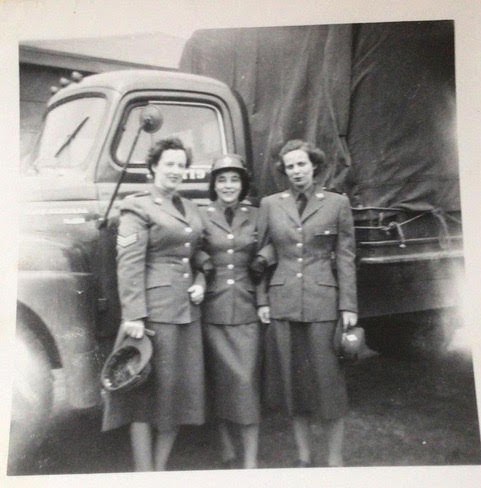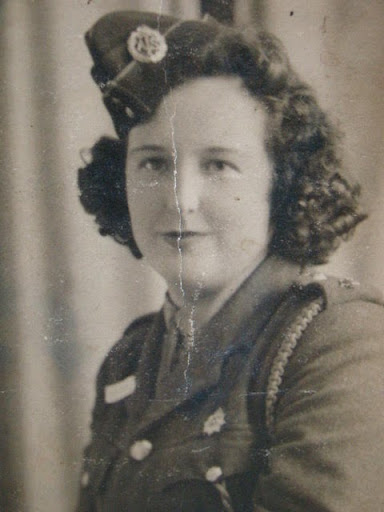MEET THE MAYORAL CANDIDATES: Marie-Josée Savard seeks to define herself outside of Labeaume’s shadow Peter Black, Local Journalism Initiative reporter peterblack@qctonline.com One might call it a tough act to follow,…
Tag Archives: November 3 2021
Construction of new central library in full swing
Construction of new central library in full swing Ruby Pratka, Local Journalism Initiative reporter ruby@qctonline.com Quebec City’s flagship library is undergoing a major makeover. In August 2019, the Bibliothèque Gabrielle-Roy,…
 October was unseasonably warm in Quebec, resulting
in particularly brilliant fall colours. This photo was
taken in Lévis.
October was unseasonably warm in Quebec, resulting
in particularly brilliant fall colours. This photo was
taken in Lévis. PHOTOS: A fall feast for the eyes
PHOTOS: A fall feast for the eyes Photos by Danielle Burns…
Transit for all gaining traction in Quebec City
Transit for all gaining traction in Quebec City
Ruby Pratka, Local Journalism Initiative reporter
ruby@qctonline.com
Every morning, thousands of Quebec City residents board city buses to go to work, attend school or make it to appointments. Many swipe their OPUS cards without a second thought. However, for people on fixed incomes or without the disposable income to buy a monthly pass ($89.75) or a book of tickets ($58 for 20 rides) in advance, getting the $3.50 needed for a cash fare can become an insurmountable obstacle, forcing them to miss out on job opportunities, medical appointments and time with loved ones.
The Saint-Roch based Collectif pour un transport abordable et accessible à Québec (Collectif TRAAQ) estimates that as many as 54,000 people in Quebec City (one in six adults) struggle to afford bus fare. Since 2016, they have been advocating for people living below the poverty line to have access to half-price bus passes. “If you’re poor, every cent counts,” said Catherine Rainville, social activities coordinator at TRAAQ. “Clothes, food, everything has to be counted. Some people on fixed incomes are left with only $40 a month after food, rent and other expenses; that’s not enough to afford a bus pass.”
On the TRAAQ Facebook page, several people on fixed incomes – single parents, job seekers, seniors and people with disabilities – share stories of having to beg or hunt for cans on the side of the road to get bus fare, or of missing out on important appointments. Ghislain Hudon, a visually impaired transit rider, explains in a TRAAQ video that if bus tickets were more affordable, he would no longer have to choose between bus tickets and food, and would rely less on food aid.
“In 2016, some of us were part of a citizens’ committee where people shared their situations, and we realized that a lot of people lacked access to transit, but no one was talking about it,” said Rainville. “That was when we started looking for solutions.”
One solution they found was social pricing. Several Canadian cities, including Gatineau and Calgary, have already instituted reduced bus fare for people eligible for social housing; Calgary bus passes are priced on a sliding scale, while in Gatineau, riders below a certain income threshold pay two-thirds of the price of a regular pass. “These measures are put in place by the municipality; people sign up for them and then they just go to the store and buy a regular bus pass at a discount, like students and seniors do now,” Rainville explained. The loss of revenue for the transit network, she said, would be made up for by an increase in ridership. In Gatineau, according to La Presse, ridership jumped 32 per cent between 2017 and 2018 after the Société de transport de l’Outaouais brought in a discount for adults making less than $17,000.
Once thought of as radical, the idea is gaining traction in Quebec City as municipal elections approach. Équipe Marie-Josée Savard spokesperson Lara Émond said her party “has opened the door to a social pricing project like the one in Gatineau, accessible to people living in social housing who have shown proof of income. Financial support from the government will be necessary to make these kinds of initiatives permanent.”
Démocratie Québec (DQ) proposes phasing in social pricing, starting with free passes for riders under 18 and half-price passes for seniors, before implementing a discount for low-income adults. “We’re confident that we’ll be able to increase ridership quickly with these measures,” said DQ leader Jean Rousseau, citing the success of social pricing in Gatineau. “They will become so popular that they’ll pay for themselves. We’ll also be able to get young people into the habit of using transit.”
The Québec Forte et Fière party has come out in favour of the TRAAQ proposal; Transition Québec has promised to make transit free for all riders. No one from Québec 21 was available to comment at press time.
“When we first proposed this idea, people looked at us as if we were aliens,” said Rainville. “Now there’s a lot more interest from elected officials about anything that has to do with reducing the cost of living. It’s also an issue of fairness.”

IN MEMORIAM: In memory of Joan Scofield Gagnon – A long life well lived
IN MEMORIAM: In memory of Joan Scofield Gagnon – A long life well lived
Joan Scofield GAGNON (1922-2021)
Submitted by Linda Dunn
Joan Scofield Gagnon was buried in Cornwall, Ont. on Oct. 4, 2021, exactly 99 years from the date of her birth. Raised in Birmingham, England, she enlisted at 19 and served in the Auxiliary Territorial Service during the Second World War. In Brighton, where her job was to drive officers and deliver supplies, she met and married her late husband, Willie Gagnon, a Canadian serving in the 18 Field Ambulance.
After the war ended, Joan and their son David boarded the Aquitania (a converted merchant cruiser), joining many other war brides to start a new life in Canada. The French-speaking Quebec City neighbourhood felt worlds away from home. Joan resolved to succeed, so she learned French and adjusted to the culture, but she retained Birmingham customs, too. One day, noticing labourers working in the street below the apartment, Joan prepared a tray of tea and biscuits and sent David to deliver it. He’s never forgotten the looks of surprise – or the workers’ expletives – when offered tea in china cups!
Culture was just the start of challenges Joan faced. Peter, born in 1947, needed surgery for an enlarged heart. His developmental delays became apparent; he was deaf and never learned to speak. Although the family invented signs to communicate, Pete’s disabilities caused frequent accidents, among them a fractured femur from not hearing a truck and a fractured skull from not looking before crossing train tracks.
Fortunately, Joan eventually found a school which accommodated Pete’s needs. In the 1960s, providing for a family of five sons strained finances, so Joan took in boarders. Life consisted of cooking, laundry, and ironing dozens of shirts weekly, but she found time to socialize, too, joining the Canadian Women’s Army Corps in the late 1950s and eventually attaining the rank of staff sergeant. Her one regret was managing their grocery store, which kept her away from her growing boys, although it fuelled a later determination to help establish their work lives. While university education was beyond reach, she ensured their fluency in both languages, suggested job postings and made the most of social connections to encourage her boys in directions she thought best suited them.
Willie, Joan and Pete moved to Cornwall, Ont. in the ’80s, where Joan thrived. She connected with church and community through involvement with the Salvation Army. She learned computer skills to keep family connections alive. She wrote poems, several of which were published in Cornwall’s Seaway News, and she received an award from the National Library of Poetry. Following Willie’s death (1997) and Peter’s (2011), Joan returned to Quebec City to be near her sons, although Paul, the youngest, died tragically in 2020. The kind, competent staff at Maison Paul-Triquet (a residence for Canadian veterans) cared for her in her final years. At her burial, her poems, read by David, Jimmy and Denis, brought her essence back to life.
They remain for us to remember her: A woman of faith, who loved her family, who expected little but gave a lot, and who lived an ordinary life with dignity. Our Joan was quite a lady, and we loved her dearly.


MCQ explores journey of immigrants to Quebec City
MCQ explores journey of immigrants to Quebec City Cassandra Kerwin cassandra@qctonline.com The Quebec population is becoming ever more diverse with the constant arrival of immigrants from around the world. For…
Santa Claus kicks off festive season at Parade des Jouets announcement
Santa Claus kicks off festive season at Parade des Jouets announcement Cassandra Kerwin cassandra@qctonline.com Place Fleur de Lys will host the 20th Parade des Jouets on Nov. 13 and 14….
OPINION: English-speaking Quebecers reject the “historic anglophone” label
OPINION: English-speaking Quebecers reject the “historic anglophone” label
Submitted by the Quebec Community Groups Network
English-speaking Quebecers are proud Quebecers who reject the Coalition Avenir Québec’s decision to label our community as “historic anglophones” and its plan to limit government services in our own language to citizens who are eligible to attend English schools. That is the message 96 English-speaking Quebecers signed in an open letter to Premier François Legault.
“Our community is an integral part of Quebec with full rights to participate in Quebec society and to receive government services. We are not some folkloric ‘historic’ group. We are full-fledged Quebecers, who are committed to building an inclusive Quebec where French is the common language,” says the letter, published Oct. 29 on the website of the Quebec Community Groups Network.
The letter reminds the premier that eligibility to attend school in English in Quebec is not in any way linked to the language of the student or the parent. Rather, it is linked to the language of instruction received by the parent or the previous educational pathway of the student. “Most importantly, the use of the ‘English-school-eligible’ category is grossly under-inclusive,” adds the letter. “It removes the right to receive services … in English from between 300,000 and 500,000 English-speaking Quebecers. It is utterly divorced from our community’s self-identification,” the letter says.
“Premier Legault, your government should not be attempting to define our community or limiting our access to government services, whether for critical health and social services or the right to pay our taxes in English. We believe that the right to communication and services in English should never be based on eligibility for English instruction. We are confident that the status quo reflects the values and generosity of spirit of all Quebecers.”
Other English-speaking Quebecers who agree and want to help send a strong and unmistakable message to Premier Legault are invited to join the list of Quebecers who have already signed this letter. We particularly encourage political leaders, including candidates for municipal office, to sign on. Read the full text and consult the list of signatories on the QCGN website. Email fullfledgedquebecers@qcgn.ca to add your signature.
QMJHL, Remparts honour Guy Lafleur in emotional ceremony
QMJHL, Remparts honour Guy Lafleur in emotional ceremony Luc Lang luclang@qctonline.com Guy Lafleur loves Quebec City, and the city loves him back. On Oct. 28, Lafleur returned to the ice…
COMMENTARY: Guy Lafleur, the greatest Quebec Rempart in history
COMMENTARY: Guy Lafleur, the greatest Quebec Rempart in history Luc Lang luclang@qctonline.com Quebec City has had its share of great hockey players in the 20th century. The story starts with…
